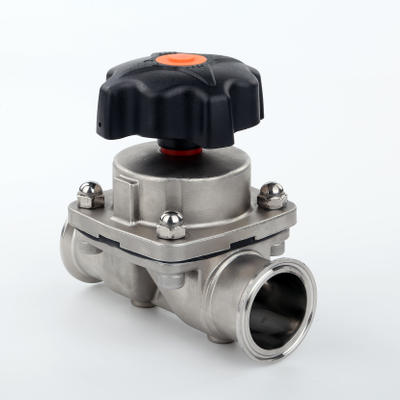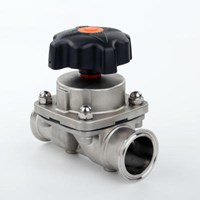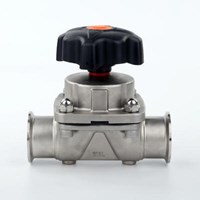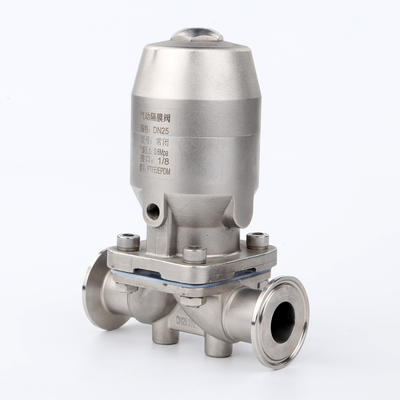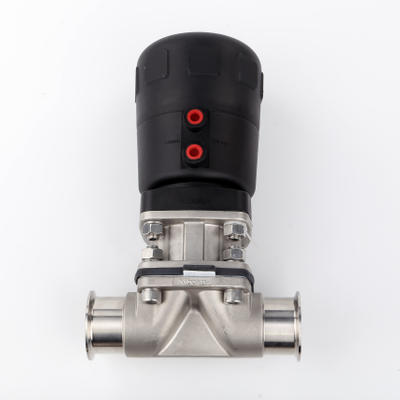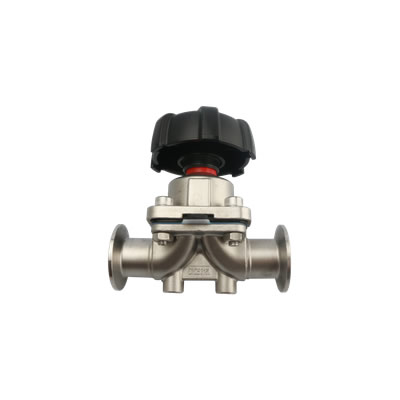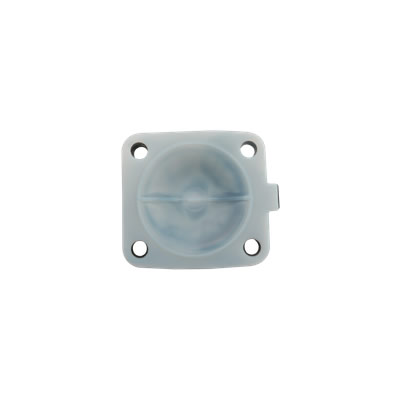Stainless Steel Sanitary Clamp Manual Diaphragm Valve
Applications
Diaphragm valves, ,manually or pneumatically, are specially designed to use on hygienic (sanitary) and aseptic processes in the pharmaceutical industries, The valves are excellent for flow control as well as for on/off duties. Diaphragm valves are widely applied to CIP/SIP.
Operating principles
The diaphragm provides the body seal as well as the seat seal. There are no paths to the outside environment and as such the valve is suitable for aseptic processes.
As the valve is closed a pressure pad which supports the diaphragm moves towards the sealing face on the body. As the pressure plate moves the diaphragm flexes and is forces down onto the seal area in the centre of the body thus closing off the flow path through the body.
The inter-relationship of body to the pressure plate prevents over compression of the diaphragm. The valve can be actuated either manually or pneumatically are controlled by control tops and solenoid valves.
Technical parameters
Max. pressure: 10bar (145psi)
Working temperature: -10℃ to +120℃
Parts in contact with the handling material: SS316L
Other stainless steel parts: SS304
Size: 1/4”-2 1/2”
Body type: Inline, T type, U type
Diaphragm material: EPDM, Silicone, EPDM +PTFE (double diaphragm) .
Inside surface finish: Ra ≤0.5μm
Outside surface finish: Satin/bright.
